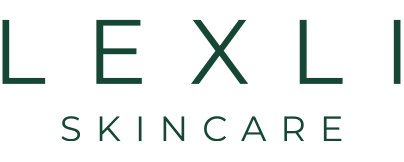It's common knowledge that pregnancy brings with it drastic changes to your body, but women are often surprised to learn just how big of an impact pregnancy can have on their skin. After all, a whopping 90% of women are estimated to experience "significant and complex" skin changes while pregnant. The reason for these changes comes down to the hormonal fluctuations consistent with pregnancy, which modify how our skin behaves.
Among the most common skin issues reported by women during pregnancy are:
Hyperpigmentation - The appearance of darkened areas of skin, especially on the cheeks, bridge of the nose, upper lip, chin and forehead. Often referred to as "melasma," these areas are caused by elevated levels of estrogen and progesterone that then signal pigment cells to increase their production of melanin.
Acne - An increase in acne breakouts on skin during pregnancy is common, especially during the first trimester when androgen hormone levels are elevated, causing an increase in the production of sebum (skin oil). Over-production of sebum, primarily due to an increase in progesterone, is one of the four main contributors of skin congestion and blemishes.
Skin Sensitivity & Redness - Even if you've never been prone to sensitive skin in the past, pregnancy hormones can cause your skin to temporarily react to seemingly everything you put on it. It's not uncommon for pregnant women to even develop rashes and dry skin.
Because of the increase in blood volume and circulation during pregnancy, skin can appear flushed or reddened. That's not always bad, however, as this change also contributes to the legendary pregnancy "glow."
Skincare Ingredient Safety During Pregnancy
When you have a skin concern, what's the first thing you typically do? If you're like most people, you look for a topical skincare product to address it. (The really wise ones among us will first seek out the guidance of their esthetician, but that's a discussion for another time.) However, not all skincare ingredients are appropriate for use during pregnancy, which limits the options available to pregnant women.
Most skincare products act locally, working only in the area of skin to which they were applied. However, some skincare ingredients that are often used in the treatment of the conditions mentioned above, are absorbed into the body's systemic circulation and thus could potentially pose a risk to the fetus. Because of this, ingredients to avoid during pregnancy include:
Hydroquinone - Commonly used to lighten the skin of those with hyperpigmentation and melasma, hydroquinone has not been established to cause adverse events in pregnant women. However, because 25 to 35% of topical hydroquinone is absorbed systematically, physicians typically advise avoiding use during pregnancy.
Topical Retinoids - Retinoids, which are derivatives of vitamin A and more commonly known by the names tretinoin, tazarotene and adapalene, are celebrated for their ability to simultaneously address acne while improving signs of aging. When used topically, only a small amount is absorbed by the skin. However, studies have shown that, when taken orally, retinoids are linked to birth defects and absolutely must be avoided by women who are pregnant or trying to get pregnant. As a precaution, physicians and organizations like the March of Dimes advise against use of topical retinoids, as well.
Some individuals suggest that common acne-fighting ingredients, like benzoyl peroxide, and alpha- and beta-hydroxy acids, like glycolic acid and salicylic acid, should be avoided during pregnancy. While 5% of benzoyl peroxide is absorbed through the skin, it is metabolized in the body and excreted in urine. Because no adverse effects of benzoyl peroxide use have been found, it is not considered an ingredient to avoid during pregnancy. Similarly, a very small amount of glycolic acid and salicylic acid is absorbed but, again, because no adverse effects have been found, these ingredients - when used at normal levels found in typical skincare products - are also considered safe during pregnancy.
Building a Pregnancy-Safe Skincare Routine
Given the limitations on skincare ingredients that can be used during pregnancy, it may be necessary to revise your usual skincare routine to focus on gentle products that hydrate and nurture skin tissue. A suggested basic skincare routine includes the following steps:
Step 1 - Morning and Night - Cleanse
Use a gentle cleanser that doesn't strip the skin. Consider Lexli's Complete Cleanser, which, like all Lexli products, features a base of soothing and hydrating aloe vera instead of water - the base in nearly all other skincare products.
Step 2 - Morning and Night - Tone
The use of a hydrating and calming skin toner is always a good idea but is especially beneficial to skin during pregnancy. Use it to remove last traces of makeup and dirt from skin by applying after cleansing and remove with a cosmetic round. Then, spritz onto skin throughout the day to minimize redness, control sebum levels and help hydrate the skin. We recommend Lexli Tone & Balance.
Step 3 - Morning and Night - Serum
Serums are most often used for anti-aging (peptide serum) and brightening (Vitamin C Serum). However, during pregnancy, we advise using a serum that hydrates the skin and calms irritation. Consider Lexli Serenity Serum, which not only helps to amplify skin moisture but also reduces redness and targets sensitivity.
Step 4 - Morning and Night - Moisturize
Finding the right moisturizer during pregnancy might require you to change formulations from what you typically use. If your skin is drier than normal, look to a heavier formulation at night that gives skin a good hydration boost while preserving moisture content. If skin is leaning toward oily, use a lighter-weight formulation that won't clog pores. Suggested options include Lexli Balanced Hydration, Simply Hydration or Ultimate Face Cream.
Step 5 - Morning - Sunscreen
Sunscreen is another vital skincare step that becomes even more important during pregnancy to help avoid the hyperpigmentation that skin is susceptible to during this time. While chemical sunscreens are generally considered safe during pregnancy, some dermatologists recommend the use of mineral sunscreens that physically block UV rays.
If acne, melasma or other common skin conditions in pregnancy are an issue, there are safe skincare ingredients that you can use.
For Acne - As mentioned above, products that contain benzoyl peroxide and salicylic acid can be used during pregnancy. However, if looking for alternatives, consider treatments with azelaic acid.
For Hyperpigmentation - Azelaic acid can also help improve hyperpigmentation and is a good alternative to the stronger treatments that utilize hydroquinone. Additionally, topical products with vitamin C may be beneficial when used consistently.
Finally, when selecting safe skincare products to use during pregnancy, it's always best to consult the latest research on the topic. Expert resources include the American Academy of Dermatology, March of Dimes and The American College of Obstetricians and Gynecologists, who will be up-to-date on the latest guidance.
Image courtesy of Gabriel Tovar





